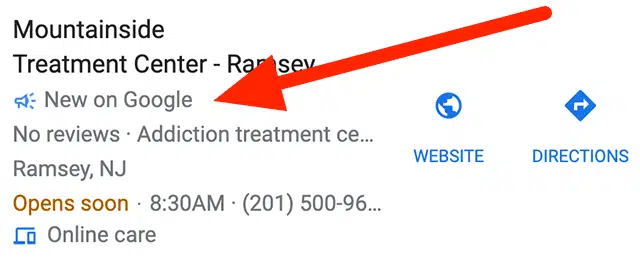Search Engine Land’s daily brief features daily insights, news, tips, and essential bits of wisdom for today’s search marketer. If you would like to read this before the rest of the internet does, sign up here to get it delivered to your inbox daily.
Good morning, Marketers, so what’s the deal with the Google core update that was released last week?
I’ve got to say, this is an unusual one — most core updates that Google releases start off quickly with a big bang. But as of last Friday morning, the signals I track around these updates show very little signs of what I would classify as a Google broad core update. Some of the tools are showing tremors but most of those tools are not showing the levels of volatility that we would expect from a core update. The level of “chatter,” as I like to call it, from the SEO industry is not even close to the levels you would expect from a core update.
We’ll take a look today at whether things popped over the weekend, but so far this update feels like all talk and no teeth.
Barry Schwartz,
Core update weather man
Moz acquired by iContact
Moz, founded by Rand Fishkin and his mother, and now led by CEO Sarah Bird, has been acquired by iContact Marketing Corp, a subsidiary of the publicly traded company, J2 Global. “Moz remains committed to continuing to improve the company’s all-in-one SEO toolset and maintaining the accuracy of the data upon which it is built,” the company wrote in its press release.
As you may remember, Fishkin and his mother started Moz as SEOmoz, offering SEO consulting services and free SEO education. In 2014, Sarah Bird replaced Rand Fishkin as the CEO of Moz and then in 2018, Rand stepped away from the company he founded to start a new company.
The terms of the deal and the financial details of this acquisition will not be disclosed, a Moz representative told us.
Why we care. Moz is one of the more reputable toolsets in the industry, so we hope this sale helps fund new features, tools and support options for customers. Organic search and email marketing are some of the most powerful marketing channels brands have, so it will be interesting to see how Moz and iContact’s tools integrate, if they ever do.
For members of the search community at Moz, many of whom have been featured here or at SMX, we hope the acquisition treats you well. All the messaging from the two companies suggest only positive things about this acquisition, as you’d expect. But that isn’t always what happens after takeovers.
Google announces its own version of App Tracking Transparency
Google has notified Android app developers that it will enable users to opt out of sharing their Advertiser ID, which enables marketers to track users as they move between apps, the Financial Times first reported last week. On its face, it sounds quite similar to Apple’s App Tracking Transparency that rolled out just six weeks ago.
However, the wording Google used on its Advertiser ID help page suggests that users will have the option to opt out, as where Apple’s implementation requires users to opt in to tracking. If users have to dig through menus, they probably won’t (at least not as many of them), which will soften the blow to advertisers that rely on this data. If it ends up being closer to Apple’s implementation, in which users are asked for permission the first time an app is opened, then it’s likely that a larger proportion of users will opt out.
The change will roll out in phases, beginning with apps running on Android 12 towards the end of this year.
Google Local changes and testing


Google has released some changes to Google Local and Maps this week including changes to short names, a “New on Google” label in the search results, and testing an updated layout to the local business profile cards on mobile. Also, if you are in Italy, you can use Google Assistant to create your Google My Business profile by just using your voice; no joke, you just say “Hey Google, bring my business online.”
I am honestly sad to see Google slowly removing the short names feature for Google business profiles, but I suspect it had very low usage.
Here is what is new with Google Maps and Local this week.
Math solvers, people also ask and curbside pickup
“People also ask” as “learn more”. Google has been caught testing replacing the “people also ask” header with a “learn more” header. Valentin Pletzer shared some screenshots of this in action on Twitter.
Six new math solver problems. Remember, Google has math solver problem type rich result support? Well, this week the company added six more problem types, including arithmetic, eigenvalue, eigenvector, limit, statistics and system of equations. There are now a total of 49 types of problems you can markup.
Curbside searches up 5,000%. Google said that searches for “curbside pickup” have increased globally by 5,000% year over year. That is big. Does your business support curbside pickup?
We’ve curated our picks from across the web so you can retire your feed reader.
- 6 Practical Ways to Get Buy-In for SEO – BruceClay
- Microsoft Bing Explore This Page Feature – Search Engine Roundtable
- Mobile Technology and Home Broadband 2021 – Pew Research Center
- Waymo’s driverless taxi service can now be accessed on Google Maps – TechCrunch
- Study: Featured Snippet Length and Display Limits – Portent



